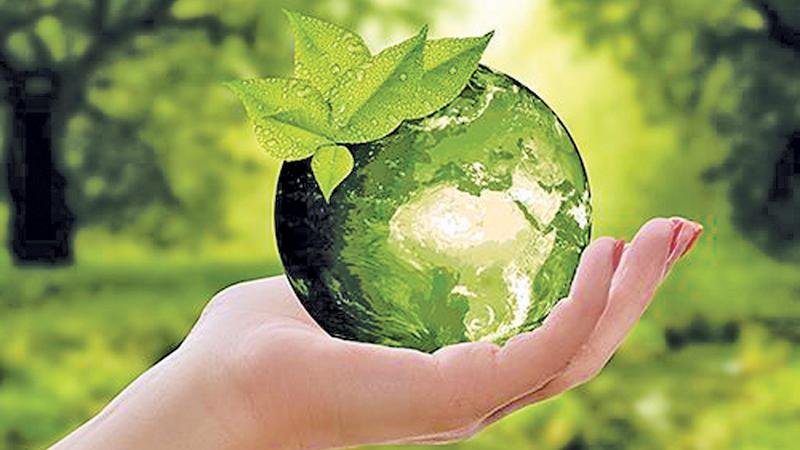
The environment is not just a collection of separate elements but rather a complex and interconnected system that supports all life on Earth. Unfortunately, human activities have increasingly put this system at risk. Deforestation, habitat destruction, pollution, overconsumption, and the emission of greenhouse gases have all contributed to the degradation and exploitation of our natural world.
One of the key reasons why safeguarding the environment is crucial is the preservation of biodiversity. Every species, no matter how small or seemingly insignificant, plays a vital role in maintaining the balance of ecosystems. Each organism contributes to important ecological processes such as pollination, nutrient cycling, and pest control. By protecting diverse habitats and ensuring the survival of vulnerable species, we can help maintain the stability and resilience of ecosystems, ensuring their long-term survival.
Another pressing reason for environmental protection is the urgent need to address climate change. Human-induced climate change is causing rising temperatures, more frequent and severe weather events, and the loss of critical habitats such as coral reefs and polar ice caps. By reducing greenhouse gas emissions and transitioning to renewable energy sources, we can mitigate the impacts of climate change and work towards a more sustainable future. This includes embracing sustainable practices in sectors such as agriculture, transportation, and energy production.
Securing clean air and water is also a fundamental aspect of environmental protection. Air pollution, primarily caused by industrial activities and vehicle emissions, poses significant health risks, contributing to respiratory diseases and other ailments. Similarly, water pollution, over-extraction, and contamination threaten the availability of safe drinking water for communities worldwide. By reducing pollution, promoting cleaner technologies, and adopting sustainable water management practices, we can ensure the availability of clean air and water for ourselves and future generations.
Biodiversity and ecological balance
Our planet teems with an astonishing array of species, each playing a unique role in maintaining the delicate balance of ecosystems. Preserving biodiversity is crucial for the stability and resilience of these ecosystems.
By protecting diverse habitats and safeguarding vulnerable species, we ensure the continuity of vital ecological processes. Moreover, a rich biodiversity offers potential for scientific discoveries, medicine, and sustainable resource management. As stewards of the Earth, it is our responsibility to halt the alarming loss of biodiversity and protect the intricate web of life that supports us all.
Climate change and global impact
Human-induced climate change is an existential threat that demands immediate action. Rising temperatures, extreme weather events, and melting ice caps are just a few consequences of our carbon-intensive lifestyles. By reducing greenhouse gas emissions, transitioning to renewable energy sources, and embracing sustainable practices, we can mitigate the impacts of climate change and safeguard our future. Protecting the environment means adopting sustainable practices, such as reforestation and sustainable agriculture, which can help sequester carbon and mitigate climate change effects while ensuring food security.
Air and water quality
Clean air and water are fundamental human rights, yet they are increasingly under threat. Air pollution poses severe health risks, leading to respiratory ailments and cardiovascular diseases. Protecting the environment means reducing air pollution, promoting cleaner technologies, and supporting policies that prioritize public health.
Similarly, safeguarding water sources from pollution, over-extraction, and contamination is essential for sustaining life and ensuring access to safe drinking water for all. Conserving water, promoting sustainable water management practices, and protecting natural water bodies are crucial steps toward achieving this goal.
Sustainable resource management
Our current patterns of resource consumption are pushing the Earth’s finite resources to their limits. By embracing sustainable resource management, we can ensure the responsible use of natural resources while minimizing waste and environmental degradation. Transitioning to circular economies, reducing plastic pollution, and adopting sustainable consumption and production practices are key components of protecting the environment and securing a sustainable future.
Human health and well-being
The well-being of human beings is intricately linked to the health of the environment. From access to clean air and water to the mental and physical benefits of spending time in nature, a healthy environment directly impacts our overall well-being. Preserving natural spaces and green areas in urban settings, promoting eco-tourism, and fostering environmental education can enhance public health and create thriving communities.
Protecting the environment is not a choice but a responsibility we owe to our planet and future generations. By recognizing the intrinsic value of nature, preserving biodiversity, mitigating climate change, securing clean air and water, embracing sustainable resource management, and prioritizing human health and well-being, we pave the way for a sustainable and resilient future. It is time for collective action, where individuals, communities, governments, and industries unite to champion environmental protection. Together, we can create a world where nature thrives, and we can continue to enjoy the incredible beauty and resources that our planet provides.

